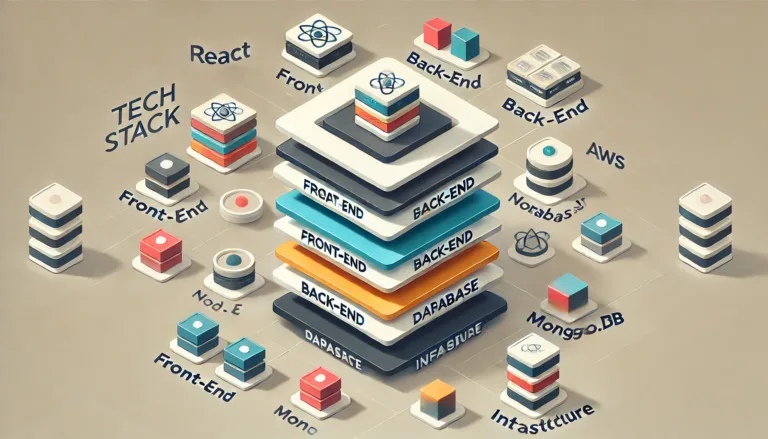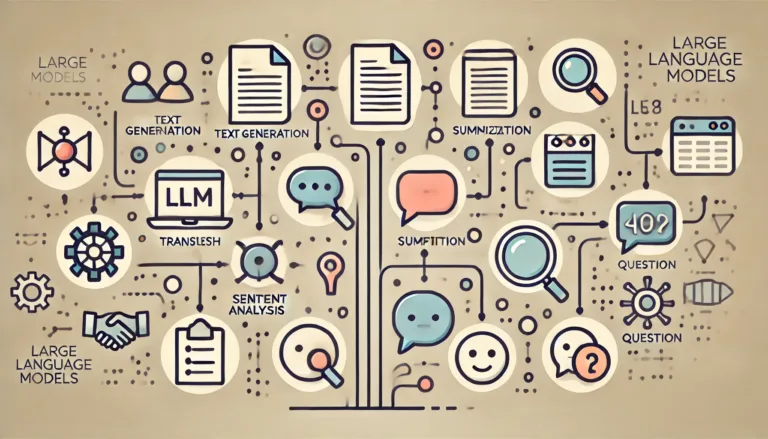Introduction
Education is one of the most powerful tools we have for shaping the future, and AI is making it more personalized, accessible, and effective than ever before. From adaptive learning systems to AI-powered tutoring, the potential applications in education are vast and varied. If you’re passionate about using technology to enhance learning, this article will introduce you to 32 AI project ideas that can help transform the educational landscape.
Beginner-Level AI Projects in Education
These beginner-level projects are ideal for those new to AI in education, offering a solid foundation in understanding how AI can be applied to enhance learning and teaching.
1. AI-Powered Tutoring Systems
- Objective: Develop AI systems that provide personalized tutoring, adapting to each student’s learning style and pace.
- Tools and Technologies: Python, Natural Language Processing (NLP), machine learning.
- Learning Outcomes: Learn how AI can tailor educational content to individual needs, offering a more personalized learning experience.
2. AI for Exam Grading
- Objective: Automate the grading of exams and assignments using AI, reducing the workload for educators.
- Tools and Technologies: Python, NLP, machine learning.
- Learning Outcomes: Understand how AI can provide consistent and unbiased grading, freeing up time for teachers to focus on instruction.
3. Adaptive Learning Systems
- Objective: Create AI-powered learning platforms that adapt to students’ needs, offering customized content based on performance.
- Tools and Technologies: Python, machine learning, educational data analysis.
- Learning Outcomes: Explore how AI can enhance student engagement by providing a learning experience that adjusts to individual progress.
4. AI for Curriculum Development
- Objective: Use AI to design and optimize educational curriculums, ensuring they are up-to-date and effective.
- Tools and Technologies: Python, curriculum design tools, data analytics.
- Learning Outcomes: Learn how AI can assist educators in creating curricula that meet the evolving needs of students and educational standards.
5. AI in Language Learning
- Objective: Develop AI tools that assist in learning new languages by providing interactive exercises and personalized feedback.
- Tools and Technologies: Python, NLP, speech recognition.
- Learning Outcomes: Understand how AI can make language learning more engaging and effective through tailored practice and instant feedback.
6. AI for Classroom Management
- Objective: Build systems that assist teachers in managing classrooms by tracking student behavior and participation.
- Tools and Technologies: Python, machine learning, data analytics.
- Learning Outcomes: Explore how AI can help maintain an organized and productive classroom environment, allowing teachers to focus on instruction.
Intermediate-Level AI Projects in Education
These intermediate projects require a deeper understanding of AI and its applications, offering more complex solutions to educational challenges.
7. AI-Powered Student Assessment
- Objective: Create tools that assess student performance and provide detailed feedback, helping educators tailor their teaching strategies.
- Tools and Technologies: Python, machine learning, data analytics.
- Learning Outcomes: Learn how AI can provide insights into student learning, enabling more targeted and effective teaching.
8. AI in Educational Content Creation
- Objective: Automate the creation of educational content, including lesson plans, quizzes, and study materials.
- Tools and Technologies: Python, content generation tools, machine learning.
- Learning Outcomes: Understand how AI can reduce the workload for educators by generating high-quality, customized educational resources.
9. AI for Special Education
- Objective: Develop tools that assist students with special needs by providing personalized learning plans and resources.
- Tools and Technologies: Python, machine learning, assistive technology.
- Learning Outcomes: Explore how AI can support inclusive education by adapting learning materials to the unique needs of each student.
10. AI-Powered Learning Analytics
- Objective: Analyze student data to improve learning outcomes, identifying trends and areas for improvement.
- Tools and Technologies: Python, data analytics, machine learning.
- Learning Outcomes: Learn how AI can help educators make data-driven decisions that enhance student learning and achievement.
11. AI in Educational Games
- Objective: Create educational games that use AI to enhance learning, making education fun and interactive.
- Tools and Technologies: Python, game development engines, machine learning.
- Learning Outcomes: Understand how AI can be used to create engaging educational experiences that promote active learning.
12. AI for Student Engagement
- Objective: Develop systems that keep students engaged in online learning environments by adapting content and providing interactive activities.
- Tools and Technologies: Python, machine learning, online learning platforms.
- Learning Outcomes: Explore how AI can maintain student interest and participation, leading to better learning outcomes in digital education.
13. AI in Academic Research
- Objective: Use AI to assist in academic research and data analysis, streamlining the research process.
- Tools and Technologies: Python, data analysis tools, machine learning.
- Learning Outcomes: Learn how AI can help researchers analyze large datasets, identify patterns, and generate new insights.
14. AI for Educational Administration
- Objective: Automate administrative tasks in educational institutions using AI, such as scheduling, attendance tracking, and resource management.
- Tools and Technologies: Python, automation tools, machine learning.
- Learning Outcomes: Understand how AI can improve the efficiency of educational institutions, allowing administrators to focus on strategic planning.
15. AI-Powered Knowledge Management
- Objective: Create systems that manage and organize educational resources, making it easier for students and teachers to access relevant information.
- Tools and Technologies: Python, knowledge management systems, machine learning.
- Learning Outcomes: Explore how AI can help streamline the organization and retrieval of educational content, improving resource accessibility.
16. AI in Exam Preparation
- Objective: Develop tools that help students prepare for exams by generating practice questions and personalized study plans.
- Tools and Technologies: Python, educational platforms, machine learning.
- Learning Outcomes: Learn how AI can assist students in preparing effectively for exams, enhancing their confidence and performance.
Advanced-Level AI Projects in Education
These advanced projects are suited for those with significant experience in AI, offering opportunities to create transformative solutions in education.
17. AI for Personalized Learning Paths
- Objective: Create AI that designs personalized learning paths for students, adapting to their strengths and weaknesses.
- Tools and Technologies: Python, machine learning, educational platforms.
- Learning Outcomes: Understand how AI can provide tailored educational experiences that maximize student potential.
18. AI in Collaborative Learning
- Objective: Develop tools that support collaborative learning environments, enabling students to work together effectively, even in virtual settings.
- Tools and Technologies: Python, collaboration platforms, machine learning.
- Learning Outcomes: Learn how AI can enhance group learning by facilitating communication, coordination, and knowledge sharing among students.
19. AI for Teacher Professional Development
- Objective: Use AI to assist in the professional development of teachers, offering personalized training and feedback.
- Tools and Technologies: Python, professional development platforms, machine learning.
- Learning Outcomes: Explore how AI can support teachers in enhancing their skills and staying up-to-date with educational best practices.
20. AI-Powered Education Portals
- Objective: Create online portals that use AI to enhance learning experiences, offering personalized content and resources.
- Tools and Technologies: Python, web development tools, machine learning.
- Learning Outcomes: Understand how AI can transform educational portals into dynamic, student-centered platforms that cater to individual learning needs.
21. AI in Student Support Services
- Objective: Develop tools that provide support to students outside the classroom, such as academic advising, counseling, and career guidance.
- Tools and Technologies: Python, support service platforms, machine learning.
- Learning Outcomes: Learn how AI can help educational institutions offer comprehensive support services, ensuring student success.
22. AI for Learning Disability Detection
- Objective: Create tools that detect and assist with learning disabilities, offering tailored interventions and resources.
- Tools and Technologies: Python, NLP, machine learning.
- Learning Outcomes: Explore how AI can play a crucial role in early detection and support for students with learning challenges.
23. AI in Lifelong Learning
- Objective: Develop systems that support lifelong learning and skill development, helping individuals stay competitive in a rapidly changing world.
- Tools and Technologies: Python, online learning platforms, machine learning.
- Learning Outcomes: Understand how AI can provide personalized learning opportunities throughout an individual’s life, promoting continuous growth and development.
24. AI for Educational Equity
- Objective: Use AI to promote educational equity and access, ensuring that all students have the opportunity to succeed.
- Tools and Technologies: Python, educational data analysis, machine learning.
- Learning Outcomes: Learn how AI can help identify and address disparities in education, creating a more equitable learning environment for all.
25. AI-Powered Research Tools
- Objective: Create tools that assist students in conducting research, offering guidance on methodology, data analysis, and report writing.
- Tools and Technologies: Python, research platforms, machine learning.
- Learning Outcomes: Explore how AI can enhance the research process, making it more accessible and manageable for students.
26. AI in Student Motivation
- Objective: Develop tools that keep students motivated in their studies, using AI to provide encouragement, rewards, and personalized goals.
- Tools and Technologies: Python, educational platforms, machine learning.
- Learning Outcomes: Understand how AI can play a vital role in maintaining student motivation, leading to better academic outcomes.
27. AI for Parent-Teacher Communication
- Objective: Create systems that facilitate communication between parents and teachers, ensuring that parents are informed and involved in their child’s education.
- Tools and Technologies: Python, communication platforms, machine learning.
- Learning Outcomes: Learn how AI can improve the partnership between parents and educators, contributing to a supportive learning environment for students.
28. AI in Online Course Development
- Objective: Automate the development of online courses using AI, from content creation to assessment design.
- Tools and Technologies: Python, online learning platforms, content generation tools.
- Learning Outcomes: Explore how AI can accelerate the creation of high-quality online courses, making education more accessible and flexible.
29. AI for Classroom Analytics
- Objective: Analyze classroom data to improve teaching methods, providing insights into student engagement, participation, and understanding.
- Tools and Technologies: Python, data analytics, machine learning.
- Learning Outcomes: Understand how AI can help educators refine their teaching strategies, leading to more effective and responsive instruction.
30. AI-Powered Study Guides
- Objective: Develop tools that generate study guides based on course material, helping students review and consolidate their learning.
- Tools and Technologies: Python, educational platforms, machine learning.
- Learning Outcomes: Learn how AI can assist students in organizing their study sessions, improving their retention and comprehension of course content.
31. AI in Student Retention
- Objective: Use AI to predict and improve student retention rates, identifying at-risk students and offering targeted interventions.
- Tools and Technologies: Python, educational data analysis, machine learning.
- Learning Outcomes: Explore how AI can help institutions keep students on track, reducing dropout rates and supporting student success.
32. AI for Virtual Classrooms
- Objective: Create virtual classrooms that use AI to enhance learning experiences, offering real-time feedback, adaptive content, and interactive activities.
- Tools and Technologies: Python, virtual classroom platforms, machine learning.
- Learning Outcomes: Understand how AI can make virtual learning more engaging, effective, and accessible to students around the world.
Conclusion
AI has the power to revolutionize education, making it more personalized and engaging for students of all ages. Whether you’re developing an AI-powered tutor or creating tools for classroom management, the projects you explore here can make a significant impact on how we teach and learn. As you consider these ideas, think about how your work can contribute to a brighter, more educated future.
After exploring the transformative potential of AI in education, our final article will focus on Personal Development. Here, we’ll look at how AI can help individuals achieve their goals, manage their time, and improve their well-being, bringing our exploration of AI full circle.









